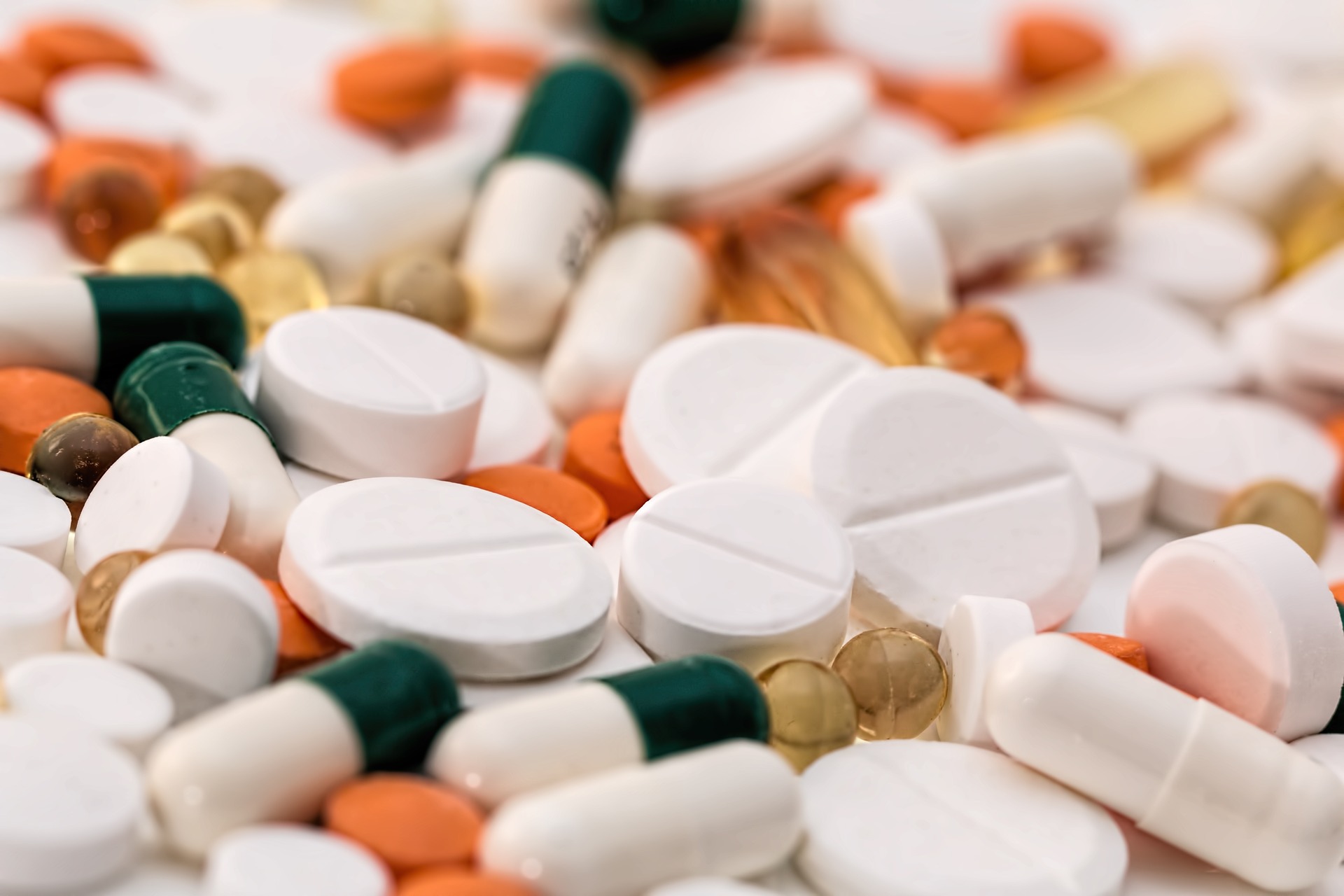Depression: Biological treatments
 Biomedical approaches to treatment are based on the assumption that if the problem is based on biological malfunctioning, drugs should be used to restore the biological system. For example, since depression is assumed to involve an imbalance in neurotransmission, antidepressant medications are used to restore an appropriate chemical balance in the brain. However, although chemicals are involved in depression it is not a simple matter of one chemical being too low and another too high. It is probably more correct to say that many chemicals are involved in a dynamic system responsible for mood regulation. Although researchers know more than ever about how the brain regulates mood, their understanding of the biology of depression is far from complete. For example, there are no simple biological markers that can be used from blood or urine testing to help diagnose someone with depression.
Biomedical approaches to treatment are based on the assumption that if the problem is based on biological malfunctioning, drugs should be used to restore the biological system. For example, since depression is assumed to involve an imbalance in neurotransmission, antidepressant medications are used to restore an appropriate chemical balance in the brain. However, although chemicals are involved in depression it is not a simple matter of one chemical being too low and another too high. It is probably more correct to say that many chemicals are involved in a dynamic system responsible for mood regulation. Although researchers know more than ever about how the brain regulates mood, their understanding of the biology of depression is far from complete. For example, there are no simple biological markers that can be used from blood or urine testing to help diagnose someone with depression.
Psychoactive drugs account for a large proportion of prescriptions. Pratt et al (2011) reported that between 2005-2008 more than 1 in 10 Americans ages 12 and older report taking an antidepressant drug. In 2010 antidepressants were the second most commonly prescribed medications, right after drugs to lower cholesterol. About 254 million prescriptions were written, resulting in nearly 10 billion dollars in costs.
The goal of treatment for major depression with antidepressant medication is generally to provide symptom relief. A positive response to drug treatment is defined as a clear improvement, and remission is defined by the near absence of symptoms. However, even when remission is achieved, an individual may have a risk of relapse, that is, the symptoms return after the medication is discontinued.
Drugs typically work by affecting neurotransmitters such as dopamine, serotonin or noradrenaline. For example, since serotonin is believed to play a key role in mood regulation, specific drugs can target the level of serotonin. Anti-depressants aim to increase or decrease the levels of available neurotransmitters in the synaptic gap.
Neurotransmission is affected by reuptake pumps. After the neurotransmitter is released and binds to the receptor site on the postsynaptic membrane, the neurotransmitter is reabsorbed into the terminal buttons. SSRIs – or Selective Serotonin Reuptake Inhibitors - block this process of reuptake and thus allow there to be higher levels of serotonin in the synapse. One of the most commonly used SSRIs is Prozac.
ATL: Thinking critically
The United States, New Zealand and Brazil all allow what is known as "Direct-to-consumer" (DTC) advertising. This marketing strategy targets patients - and potential patients - to urge their doctors to prescribe drugs such as antidepressants or anxiolytic (anti-anxiety) drugs.
Based on what we know about drug treatments for mental illness, what are the pros and cons of this marketing strategy? Do you think that more countries should do this? Why or why not?
Evaluation of drug therapy
The key strength of drug therapy is that for many people who suffer from depression, it alleviates the symptoms that make day-to-day living difficult. Many psychiatrists agree that antidepressants are more effective than placebos for severe mood disorders, and may help to prevent suicide in depressive patients. Geddes et al (2003) carried out a systematic review of 31 randomized trials with 4410 patients and concluded that antidepressant drugs are an effective way to treat depression and prevent relapse. Drugs have been effective in reducing the number of hospital in-patients who are being treated for psychological disorders.
In spite of the strengths of drug treatments, there are also some rather serious limitations. One limitation is the problem of side-effects – negative effect of using the drug itself. For example, anti-depressants are known to have the following side effects in some patients: nausea, increased weight gain, loss of sexual desire, insomnia, blurred vision, constipation, dizziness, and anxiety. Interestingly, you can see that some of these side effects could actually contribute to lowering one’s self-esteem or sense of autonomy – two characteristics of people living with chronic depression.
Another limitation of drug therapy is that clinicians are still not sure how these drugs alleviate symptoms of depression and why the treatment is not effective for all patients. Even though they boost levels of neurotransmitters in the brain within days or even hours of use, it usually takes several weeks of treatment before a therapeutic benefit results. And not all patients respond to them. For example, the serotonin hypothesis has been challenged as an etiology to explain the origins of depression. So, although some may people may benefit from the increased level of serotonin, it may be that drugs like Prozac are simply alleviating a symptom of depression, but not actually addressing the root of the disorder.
Relying too heavily on drug treatments may lead to the neglect of important psychological or social factors that may play a significant role in the disorder. It can be argued that simply using a drug to treat depression is a reductionist approach. A drug may alleviate symptoms, but if the cause of depression is the stress of poverty or unemployment, then the actual cause of the depression is not addressed. The drug then only provides temporary relief from the symptoms and the chance of relapse is high.
Another limitation of drug treatment is the problem of developing a dependence on the drug. Anti-depressants and anti-anxiety drugs may lead to discontinuation syndrome – often known as “withdrawal symptoms.” In addition, if drug treatment is discontinued, the chance of relapse is high. Hollon et al (2005) compared the discontinuation of anti-depressants after 16 weeks of treatment to discontinuation of Cognitive Behavioural Therapy. 76% of the patients who had received drug treatment relapsed following medication withdrawal, compared with only 31% of the patients who had been treated with therapy.
ATL: Reflection
 Let's say that you are having problems at school with concentration and memory. There are now drugs available to fix this - or at least, that is the claim. They are called Nootropic drugs. There are several on the market, including NZT and Provigil.
Let's say that you are having problems at school with concentration and memory. There are now drugs available to fix this - or at least, that is the claim. They are called Nootropic drugs. There are several on the market, including NZT and Provigil.
Reading about the drugs online, you will find that although most people do not report side effects, the following side effects have been experienced by some patients: headaches, insomnia, vomiting, diarrhea, anxiety, paranoia, and depression. In addition, they have been shown to lead to discontinuation syndrome.
Based on this information, would you take such a drug? What would be your justification? What would convince you to take the drug? What would convince you not to take it?
- How important it is for you to improve your memory
- The actual effectiveness of the drug
- Looking at the incidence of the side effects
- The problem of discontinuation (withdrawal)
- The cost and whether such a drug could be covered by health insurance.
Finally, drug therapy presents some ethical concerns. Unless treatment is regarded as an emergency – for example, the client is suicidal - it cannot be given without the client’s consent, except in cases where the client may not be capable of giving consent. This consent should be given on the basis of full information about the potential benefits and drawbacks of the drugs concerned, in which case it fulfills the ethical criterion of informed consent.
There is a major concern about the rise in prescriptions of drugs such as antidepressants because they can cause harm if they are not prescribed appropriately. There is an ongoing debate among clinicians about possible medical and psychological risks in prescribing so many antidepressants as well as whether they are effective long-term since most clinical trials only last around 6 or 8 weeks and only address whether patients report a reduction in symptoms.
Seeing the potential limitations of drug treatment, it becomes even more apparent that there is a sincere ethical concern about the way that diagnoses are made. When drug treatment is seen as necessary in spite of the potential limitations, it is important the diagnosis has been made in a way that increases its validity. Ideally, every client that is diagnosed as needing drug treatment would have had more than one series of tests carried out by more than one psychiatrist. However, this is rarely the case. Often these drugs are prescribed by a family doctor, not a psychiatrist.
The use of drug therapies has increased the amount of out-patient care and decreased institutionalization.
Drug therapy shows results more quickly than psychological therapies. Often drug therapy is necessary so that the patient is able to engage in psychological therapy.
This approach may neglect important social and cognitive factors that contribute to the disorder. Relapse rates tend to be high when patients discontinue the use of the drug. This may be the result of a failure to develop coping or social skills that are necessary for preserving mental health.
Drug therapy often has side effects. Sometimes these side effects can be misinterpreted as a symptom of the disorder - what is known as an iatrogenic effect.
Drug therapies may lead to addiction and to withdrawal symptoms when the use of the drug is discontinued. In addition, drug therapy may result in negative effects when used in combinations with other drugs or certain foods.
Checking for understanding
Which of the following is true about drug treatments for depression?
What is the term that psychologists use when a disorder returns after a patient stops taking a drug?
How does Prozac treat depression?
One of the theories on the origin of depression is that it is due to a lack of serotonin. Prozac is an SSRI which blocks the reuptake of serotonin to the terminal buttons of a neuron. This allows there to be more serotonin in the synapse with the goal of increasing postiive mood.
Which of the following is not true about Prozac?
According to a study by Hollon et al (2005), 76% of the patients who had received drug treatment relapsed following medication withdrawal
When can a psychiatrist give drug treatment to a client?
Only in the case of suicidal behaviour - or is physically unable to give consent - may drug treatments be given without informed consent.

 IB Docs (2) Team
IB Docs (2) Team
